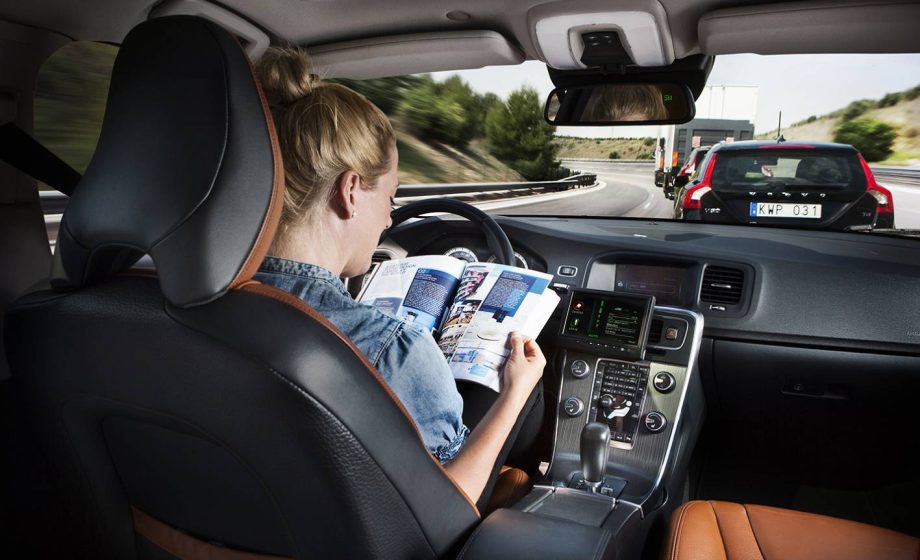Experiments have been conducted on automating vehicles since the 1920s, but no doubt recent technological innovations in the automobile industry are going to have a revolutionary impact on our way of using cars. And France wants its industry to play a major role in this. If hexagonal constructors and equipment manufacturers have already performed tests on circuits and several demonstrations to the press on an open road, until now special derogations needed to be granted. This is about to change as, in the light of France’s future industrial strategy “Nouvelle France Industrielle” (NFI), the project of fast-developing autonomous cars will finally be consolidated in a coherent reglementary framework.
Segolène Royal’s ecological transition law “loi sur la transition énergétique“, which came into force on August 18th, authorises the government to take within one year, via an ordinance, “any measure in the area of the law to allow, for experimental purposes, traffic of vehicles on public roads with partial or total delegation of conduct.” This particular provision, scheduled for October 2015, will allow autonomous vehicles to circulate in the framework of the necessary tests, supervised by technicians able to take over the car at any moment. Nonetheless, France has not adapted its legislation merely to please any car manufacturer implanted in the Hexagon. On the contrary, the French automobile industry has high ambition on the matter. Indeed, Peugeot and Citroen (PSA) as well as Renault have developed technologies enabling automatic overtaking, adapting to speed limits, following road signs or a trajectory without human intervention, delegating driving in traffic jams or autonomously parking an engine. These advances in technology will be progressively commercialised over the next years.
Indeed, more than developing fully autonomous cars, which are still some years, maybe decades ahead of us, semi-autonomous cars are about to acquire an increasingly important market share. In 2030, self-driving vehicles are expected to create $87 billion worth of opportunities for automakers and technology developers, states a report by Lux Research. According to this source, software companies will emerge as the biggest winners whereas fully autonomous driverless cars will remain “elusive”.
No matter what is going to happen in a few years, the adaptation of the law today is of crucial importance to automobile companies who are facing a highly promising and at the same time a competitive market. In 2014, BMW and Baidu, a Chinese search engine company, started working together to develop autonomous car technology and are expected to present a self-driving prototype by the end of 2015. Simultaneously, Google is testing its autonomous car, the “Google Car”, on the streets of California and several constructors such as GM, Volvo, Mercedes-Benz, Audi, Nissan and Tesla have all expressed their ambition to launch semi-autonomous cars until 2020.
Apart from being a lucrative opportunity for automobile and software companies, public authorities also expect autonomous vehicles to amount to a decrease in road accidents, better accessibility to means of transport and thus increase life quality. For France, adapting legislation in the context of its industrial strategy to regulate these tests is a necessary and common sense measure, especially as the urge for companies to innovate and invest in the development of new technologies cannot be overstated. In reality, the technology sector has demonstrated more than once that the companies planning ahead, adjusting and innovating the fastest to the technological revolution will most likely look into a bright future whereas the others, stuck on old practices, will urgently need to evolve or are likely to die. No car company wants to undergo a similar fate to Kodak, Nokia or Blackberry. And this battle has already begun.


